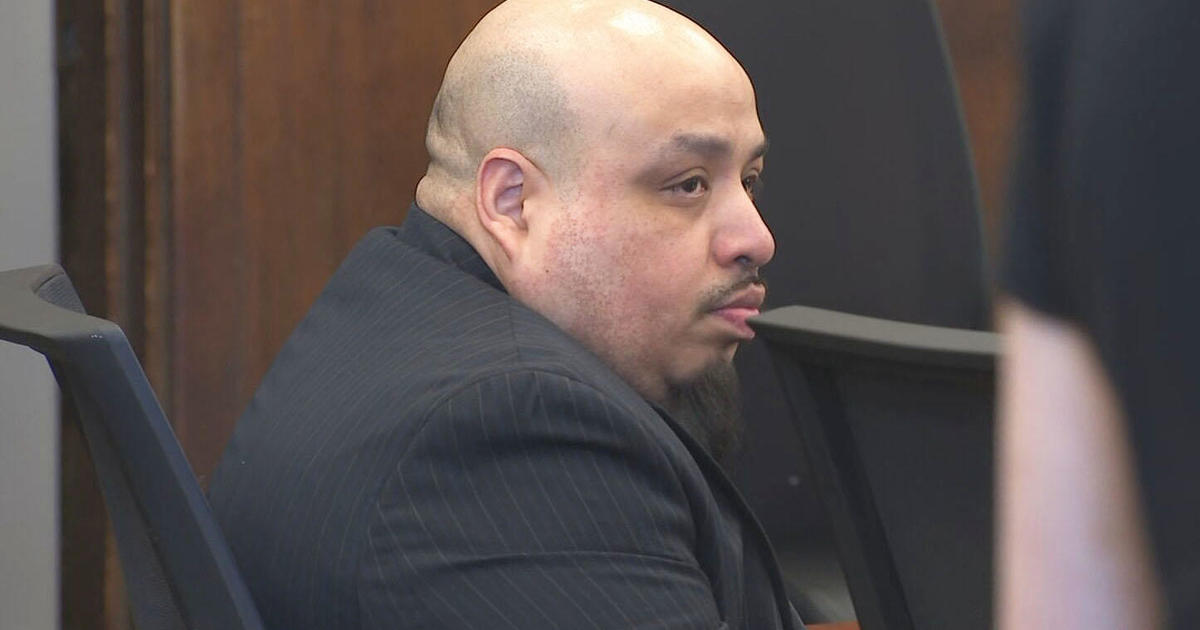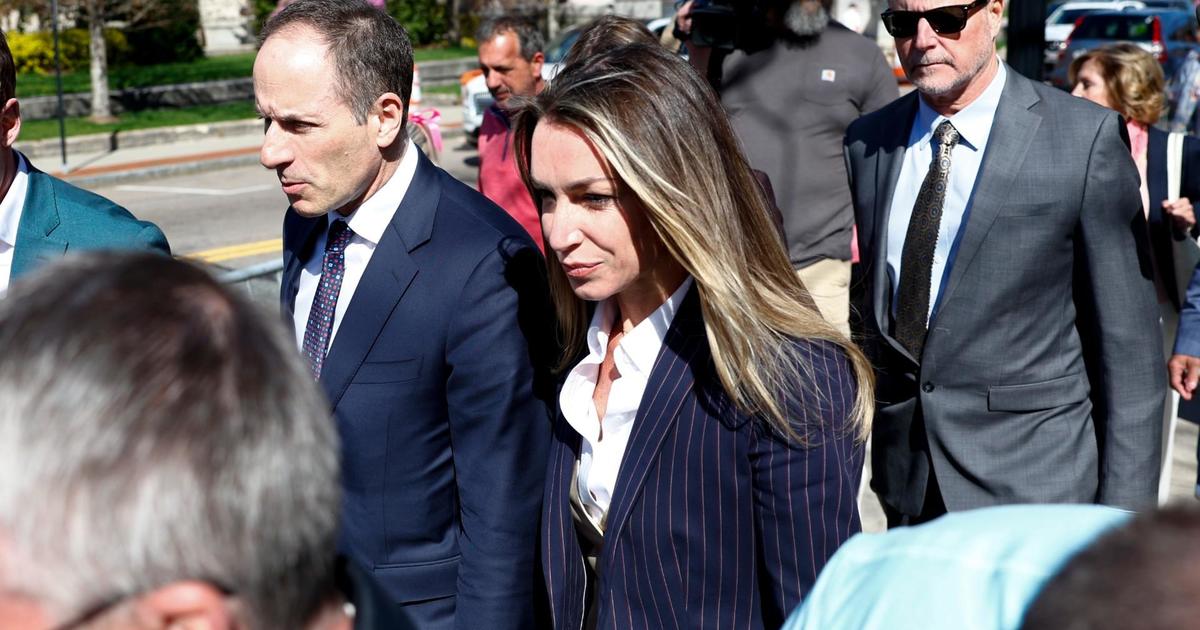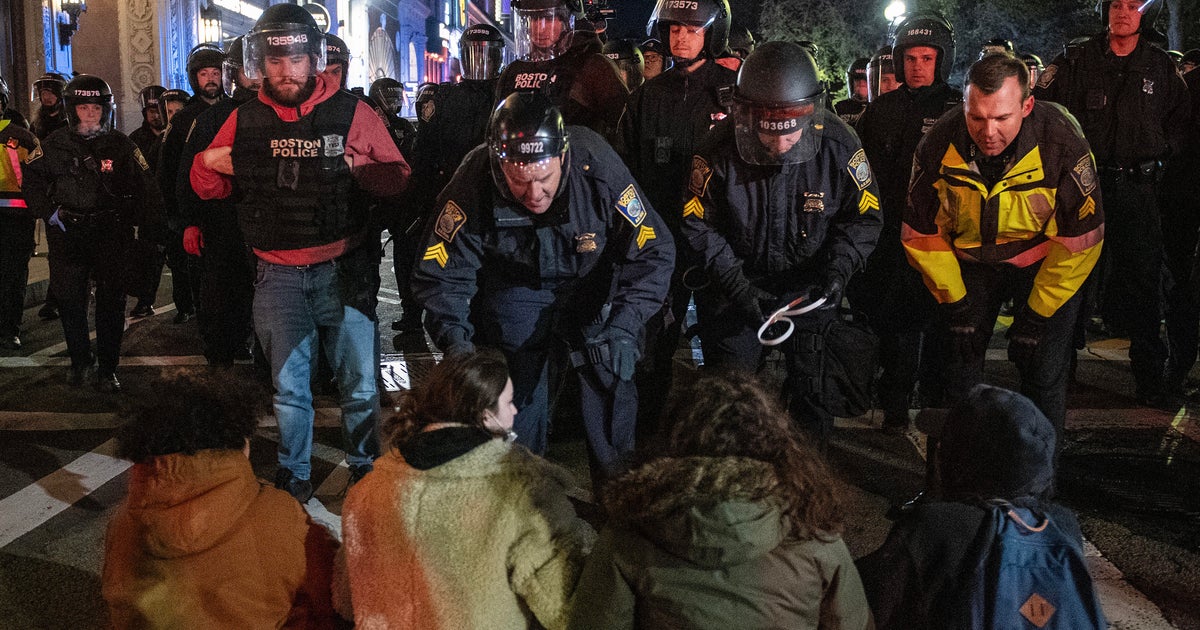Rockefeller Impostor Sentenced For Murder
LOS ANGELES (AP) — Christian Gerhartsreiter, who masqueraded across the U.S. as an heir to the fabled Rockefeller fortune, a movie producer and a wizard of Wall Street, was sentenced Thursday to 27 years to life in prison for a California cold-case murder.
Representing himself after firing his lawyers, Gerhartsreiter again asserted that he did not commit the murder of John Sohus and asked to read a voluminous motion he had submitted to the court. When Superior Court Judge George Lomeli refused, he withdrew the motion.
The hearing was marked by an emotional statement from Sohus' sister, who said some questions in the case will never be answered. She said that until his dying day, her father always asked, "Why John?"
She told the judge: "You cannot give me back my brother. All I as is that you hold Mr. Gerhartsreiter accountable."
Gerhartsreiger, handcuffed and wearing a blue jail uniform, was calm and respectful as he addressed the judge, saying he wished to read his motion aloud for the benefit of reporters and others.
"There is great public interest," he said. "It would save time for the media."
The judge told him his motion would become part of the public file where anyone can read it. But it did not become part of the public record because at that point Gerhartsreiter said, "If I do not get to read the motion, I will withdraw it." The judge said it was his right.
Asked if he had any last words for the court, Gerhartsreiter said, "I can only say again I want to assert my innocence. I did not commit the crime for which I was convicted."
Gerhartsreiter, 52, insisted from the outset he was innocent.
The German immigrant who fooled friends, lovers and a wife during an extraordinary three-decade charade took over his own representation after a jury convicted him of first-degree murder in the death of Sohus, whose bones were found buried at a suburban San Marino home.
It was a heavily circumstantial case built 28 years after Sohus vanished. There was no slam-dunk DNA solution to a murder mystery. But discovery of the bones buried for two decades in a backyard where the defendant had lived added a crucial piece to the puzzle of the man who later called himself Clark Rockefeller.
Sohus, a 27-year-old computer programmer who was the son of the defendant's landlady, vanished with his wife, Linda, in 1985. No trace of her has been found. Gerhartsreiter hinted at a recent hearing that he might have information about her whereabouts.
At Gerhartsreiter's trial, witnesses now old and frail testified about the stranger who came into their elegant town, befriending church members who invited him into their homes.
Their testimony exhumed the ghosts of the happy young newlyweds, who inexplicably vanished shortly before the man then known as Chris Chichester also disappeared.
It turned out he was off on a decades-long odyssey across the country. Variously known as Chris Crowe, Chip Smith and Clark Rockefeller, he wormed his way into high society and important jobs, married a wealthy woman and controlled her funds. But his identity unraveled when he kidnapped their daughter during a custody dispute.
The resulting publicity led California authorities to revisit the Sohus disappearance and the bones found in San Marino in 1994.
He was near the end of his sentence in Boston for kidnapping his young daughter, when he was charged with murder.
The California case was circumstantial, built from memories and bits and pieces of evidence, primarily the bones found with a bag bearing the logo of a university once attended by the defendant.
With the passage of time and lack of a motive, the prosecutor had a difficult challenge.
"Sometimes you're afraid that this guy's conned so many people for so many years that this will be the one last time he pulls off his last con," the prosecutor after the verdict. "But that didn't happen."
The defense attorney at the time, Jeffrey Denner, said that Gerhartsreiter probably was his own worst enemy.
"The way he went through life deceiving people did not make him very likable to the jury," Denner said. "But that doesn't make him a killer."
Jurors took a scant six hours to convict him.
Prosecutors did not seek the death penalty.
Copyright 2013 The Associated Press.



